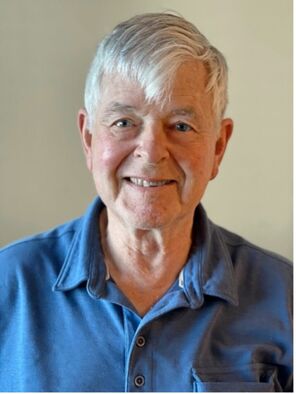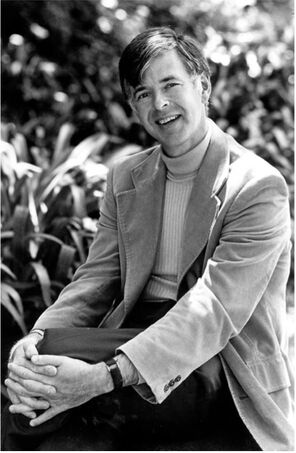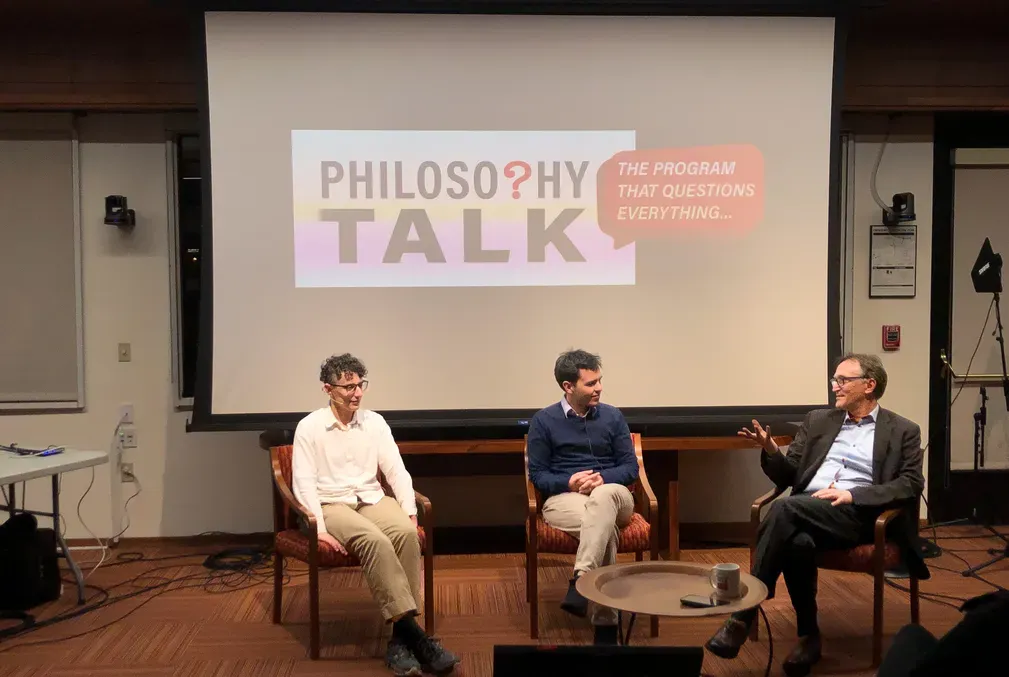Stanford anthropologist George Collier has died
An anthropologist who studied social movements, Collier traced the roots and evolution of farm laborer politics in Mexico and Spain.
George A. Collier, a professor of cultural and social anthropology in the Stanford School of Humanities and Sciences who connected agrarian change to farm laborer politics in Chiapas, Mexico, and western Andalusia, Spain, died Nov. 14 at his home in Oakland, California. He was 81.
Collier was an expert in the cultural history of Spain and the Americas and a professor in the Stanford Department of Anthropology from 1969 to 1999, serving as department chair from 1990 to 1994 and director of the Center for Latin American Studies from 1983 to 1989. Collier frequently traveled to Mexico, and his scholarship shaped understanding of the macroeconomic and political forces behind Indigenous and farm laborer social movements.
“George Collier's Stanford legacy is defined by a commitment to the highest standards of scholarship and to issues of social justice,” said Albert Camarillo, the Leon Sloss Jr. Memorial Professor, Emeritus and professor of history, emeritus in H&S. “The Department of Anthropology and the field of Latin American Studies at Stanford have lost a trusted and esteemed colleague.”
“George’s broad knowledge and skills were evident in his research and his teaching; I experienced both personally as a junior faculty member, when he and Jane, his wife, offered intellectual and social support from the day I arrived,” said Sylvia Yanagisako, the Edward Clark Crossett Professor of Humanistic Studies, Emerita and professor of anthropology, emerita. “His influence as a teacher was clear from the outpouring of remarks from former students at a recent memorial gathering. In the ’90s, when the field and the department were amid a generational shift, George was a stabilizing presence as department chair. In my view, he was the first feminist chair of the department. Long before diversity, equity, and inclusion became buzzwords, George put these ideals into practice.”
International focus
Collier’s research among the highland Maya communities of Chiapas charted the evolution of Mexico’s national policies between 1960 and 2004. His book Fields of the Tzotzil: The Ecological Bases of Tradition in Highland Chiapas (University of Texas Press, 1975) documented how Indigenous communities participated in Mexican agrarian reform and how they negotiated the complex relationships between their communities and Mexican nationals.
In the book Basta! Land and the Zapatista Rebellion in Chiapas (Food First Books, 2005), Collier and his co-author, Elizabeth Lowery Quaratiello, illustrated how the Maya came to take up arms in rebellion in 1994 to put a spotlight on their calls for Indigenous rights and autonomy. The book was published in three editions.
Collier’s last book, Socialists of Rural Andalusia: Unacknowledged Revolutionaries of the Second Republic (Stanford University Press, 1987), incorporated historical records and interviews to reconstruct villagers’ experiences during the Second Republic and Spanish Civil War. He conducted this research with his wife, Jane Collier, Stanford professor of cultural and social anthropology, emerita, in the village of “Los Olivos,” a pseudonym for the real Spanish town on which the book was based.
Collier was more than a dispassionate researcher. He often became immersed in the culture and environments where he conducted his studies, an experience he shared with his colleagues and students.
“Beyond introducing me (and others) to field research, George wove us into the local relationships and environments,” said Namino Glantz, who Collier advised as a Stanford undergraduate and later mentored as a University of Arizona doctoral student under special arrangement. “George was and is my mentor and my padrino. Thanks to George, I have lived, learned, and loved multiple cultures.”
A true academic
Collier was born Jan. 6, 1942, in Washington, D.C., to Nina Perera Collier and Charles Wood Collier, attaches to the U.S. Embassy in Bolivia. He was a grandson of John Collier Sr., Commissioner of Indian Affairs during the New Deal and nephew to anthropologists Donald and Malcolm Collier and John Collier Jr. After high school, Collier set off for Harvard University to study physics on scholarship but made the leap to anthropology while taking a freshman seminar on the Navajo. He did undergraduate field work in Chiapas, Mexico, studying Maya culture change. It was there that he met Radcliffe undergraduate Jane Heyward Fishburne. The two married in 1962 and had two children, David John and Lucy Jane.
Collier earned his doctorate in social anthropology at Harvard in 1968. While he was a postdoctoral scholar at Tulane University’s Middle American Research Institute and Jane completed her doctorate at Tulane, the whole family went on research trips to Chiapas. Collier joined the Stanford faculty in 1969, and Jane joined Stanford in 1972.
During his Stanford years, Collier thought and taught about Ibero-American culture and history (that of countries or territories in the Americas where Spanish or Portuguese is the predominant language) and especially about the place of ethnic communities within imperial and colonial systems and under capitalism.
Collier was keen on methodology and academic rigor in the courses he taught and in his research. At Stanford, he taught computer applications and statistics for anthropology and methods for anthropological fieldwork. He also created a course on writing grant proposals to help graduate students fund their research.
Collier received numerous awards, including fellowships from the John Simon Guggenheim Memorial Foundation (1976), and several grants from the National Institute of Child Health and Human Development (1973, 1983) and the National Science Foundation (1987, 1988, 1993, 1996). He retired in 1999, and he and his wife joined the Swans Market Cohousing community in Oakland, California.
George Collier is survived by his wife, Jane Fishburne Collier of Oakland; a daughter, Lucy Jane Collier of Albany, California; and by three grandchildren, Owen, Mary Fiona, and Scarlett Collier. He was preceded in death by his son, David Collier.
A Stanford memorial service was held Jan. 20. In lieu of flowers, the family requests memorial gifts in Collier’s name be made to campus organizations that sponsor anthropological field research by Stanford graduate and undergraduate students.





